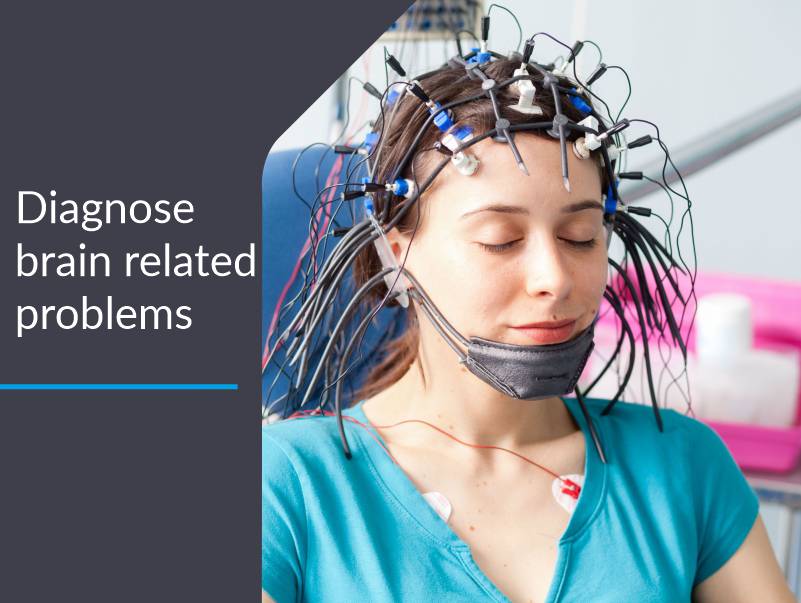An electroencephalogram (EEG) is a medical test that evaluates the electrical activity inside the brain. Our brain cells communicate with each other through the medium of electrical impulses. The EEG test will detect the potential problems that are associated with this electrical activity of our brain. There are .
- Routine EEG.
- Sleep EEG.
- Video EEG
- Portable EEG
WE DO ALL TYPE OF EEG TESTS.
WHY SHOULD YOU PERFORM AN EEG TEST ?
- To evaluate and detect various condition within the brain such as seizure disorders (such as epilepsy), head injury, encephalitis (inflammation of the brain), brain tumour, encephalopathy (a disease that causes brain dysfunction), memory problems, sleep disorders, stroke and dementia.
- Determine the level of brain activity, when in a coma
- Monitor activity during brain surgery
HOW IS AN EEG TEST PERFORMED?
- Before performing an EEG test, the doctor might ask you to wash your hair, a day before and not to apply anything on your scalp. Also, he might ask you to avoid caffeine and to sleep less a night before as you might have to sleep during the EEG test.
- Once you are at the EEG center, the technician will ask you to lie down on the recliner chair.
- After that, he will measure your head and mark the points to place the electrodes using a special cream that helps the electrodes get a high-quality reading.
- 16 to 25 electrodes dipped in an adhesive will be attached to the spots marked on your scalp
- As the test begins, the electrodes send electrical impulse data from the brain to the machine. The machine then converts the collected data into a visual pattern, which is later saved by a computer.
- During the test, the technician will ask you to close your eyes, breathe deeply, or look at a flashing light.
- The test takes 30 to 60 minutes and after the EEG test is completed, the technician removes the electrodes from your scalp.
